Intervju med Mark Jason Murray
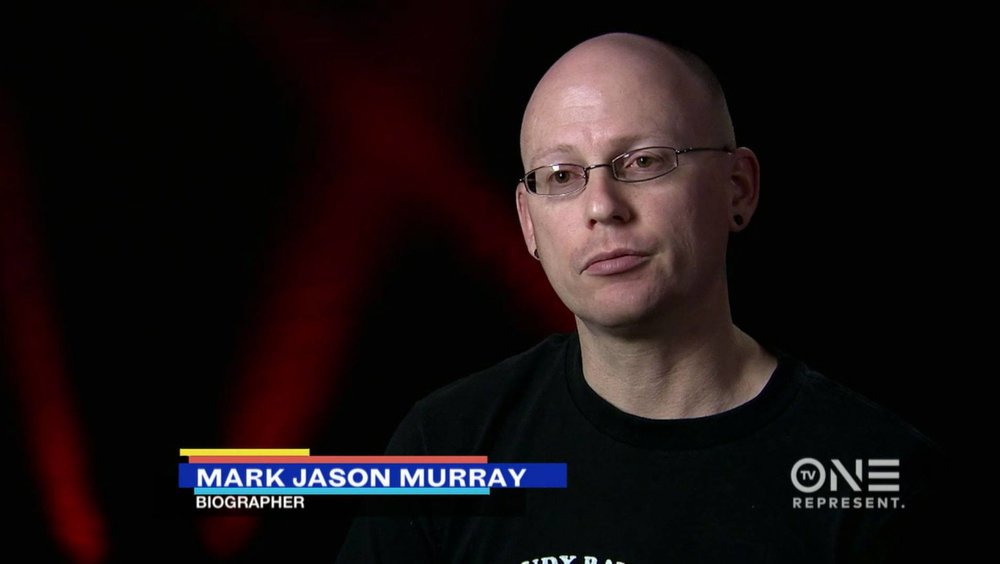
Mark Jason Murray bör ses som världens ledande expert om Rudy Ray Moores liv och karriär. När Rudy levde var Mark anställd för att ta hand om hans officiella hemsida och lite annat. Just nu är han på väg att avsluta den officiella biografin om Rudy och var även konsulent till Netflix-produktionen Dolemite Is My Name.
Could you start by telling us how you got to work for Rudy Ray Moore and for how long?
I first discovered Dolemite in 1991 when I was just 17 years old. At that time there was no information about Moore and his career available but I was so instantly fascinated I made it a personal mission to find out everything I could. About a year later, I stumbled upon an address that luckily was Moore’s and he agreed to an interview for my fanzine, Shocking Images. In 1996, he agreed for me to maintain his official website, www.rudyraymoore.com, which is active today and approved by his estate. I remained in constant contact with him until around the end of 2007 or the early part of 2008, after he was moved to Ohio as his health was failing.
I first discovered Dolemite in 1991 when I was just 17 years old. At that time there was no information about Moore and his career available but I was so instantly fascinated I made it a personal mission to find out everything I could. About a year later, I stumbled upon an address that luckily was Moore’s and he agreed to an interview for my fanzine, Shocking Images. In 1996, he agreed for me to maintain his official website, www.rudyraymoore.com, which is active today and approved by his estate. I remained in constant contact with him until around the end of 2007 or the early part of 2008, after he was moved to Ohio as his health was failing.

What exactly did you do for him?
I did several things for him, but mostly it involved mainting his website so there was accurate and up-to-date information on him while we worked together slowly on his life story. There were several times that I booked him on gigs, convention appearances, even an animated show as offers came through on the website, but that wasn’t my main area of support.
I did several things for him, but mostly it involved mainting his website so there was accurate and up-to-date information on him while we worked together slowly on his life story. There were several times that I booked him on gigs, convention appearances, even an animated show as offers came through on the website, but that wasn’t my main area of support.
Dolemite was a huge success when it came out in 1975. How much of an impact would you say that movie had on his career? How do you think his career would have looked like without taking that leap by making Dolemite?
That film took his career to a whole new level. He was smart enough to know that he needed to move into another medium as his album sales began to decline. He truly did put himself on the screen, but that was a very hard fought victory for Rudy. There weren’t very many people that believed in him and he did literally pay every penny it took to get that film made. He had everything to lose and that was the most stressful period of his life as he worked for over a year to get all the money needed to finally finish the film. Even after the film had national distribution he travelled around the country making appearances in dozens and dozens of cities with the film. It was much, much harder than it's presented in Dolemite is My Name.
That film took his career to a whole new level. He was smart enough to know that he needed to move into another medium as his album sales began to decline. He truly did put himself on the screen, but that was a very hard fought victory for Rudy. There weren’t very many people that believed in him and he did literally pay every penny it took to get that film made. He had everything to lose and that was the most stressful period of his life as he worked for over a year to get all the money needed to finally finish the film. Even after the film had national distribution he travelled around the country making appearances in dozens and dozens of cities with the film. It was much, much harder than it's presented in Dolemite is My Name.
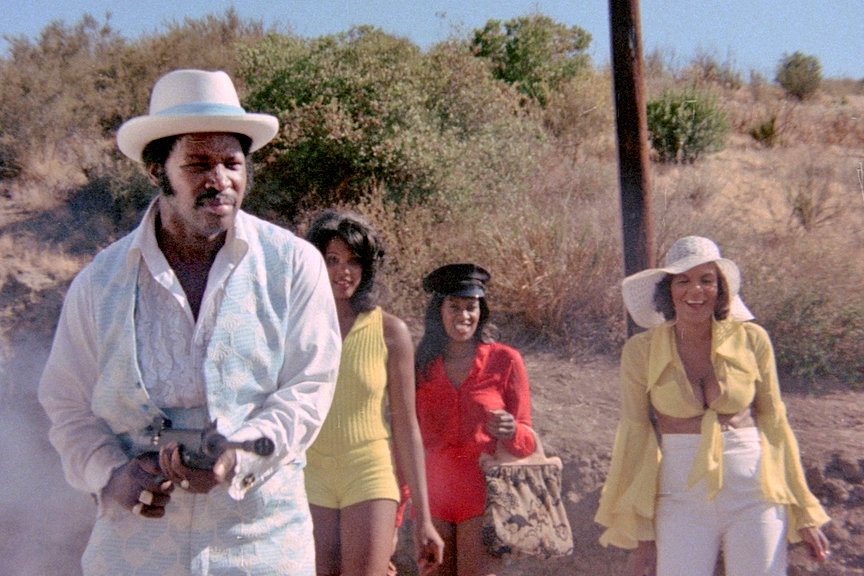
I understand The Human Tornado was his personal favorite of the movies he did. Do you know what it was about it that in his mind put it ahead of his other movies?
That is possibly the wildest of his films and he enjoyed that. The experience of making the film was also quite a bit smoother than Dolemite. He had the success of Dolemite to help propel this one along.
That is possibly the wildest of his films and he enjoyed that. The experience of making the film was also quite a bit smoother than Dolemite. He had the success of Dolemite to help propel this one along.

I personally think Petey Wheatstraw: The Devil's Son-In-Law, while not the most entertaining, is his best movie, strictly quality-wise. It just feels more competently made all around. Would you agree with that and it so, what do you attribute that too?
This movie is wild in its own regards, but the credit for a lot of what you mention goes to Cliff Roquemore, the writer and director of the film. While he directed The Human Tornado, he was asked to write Petey Wheatstraw and he was out to prove himself. He took the project very seriously. Cliff is really an unsung hero in Moore’s career, but the story of his involvement with Moore and his films is presented completely in my upcoming book.
This movie is wild in its own regards, but the credit for a lot of what you mention goes to Cliff Roquemore, the writer and director of the film. While he directed The Human Tornado, he was asked to write Petey Wheatstraw and he was out to prove himself. He took the project very seriously. Cliff is really an unsung hero in Moore’s career, but the story of his involvement with Moore and his films is presented completely in my upcoming book.
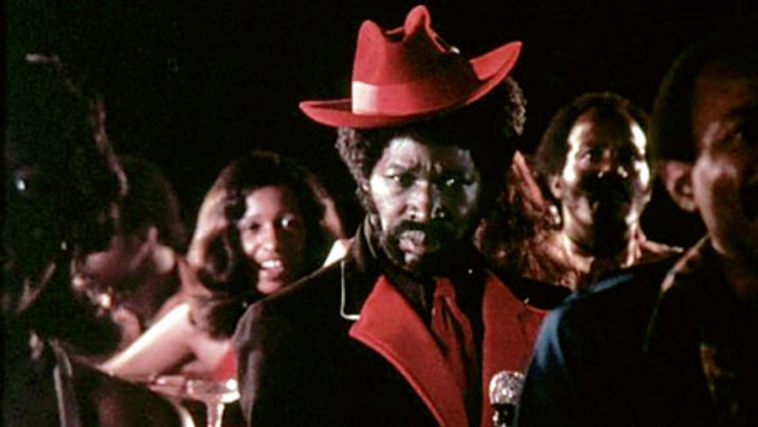
His least favorite movie, which he blamed the demise of his movie career to, is Disco Godfather. Do you think he could have maintained a movie career in the 80's if only it had done better at the box office?
I don’t think he would have been able to continue a film career past the end of the 1970’s. The film failed for several reasons, but the genre that Rudy was working in had long run its course and those types of films didn’t transition into the 1980’s. Beyond that, each of his films were less successful than the previous one and made the rounds to a large degree in drive-in theaters, which were closing at a rapid pace at the time with the rise of the mutliplex theaters.
I don’t think he would have been able to continue a film career past the end of the 1970’s. The film failed for several reasons, but the genre that Rudy was working in had long run its course and those types of films didn’t transition into the 1980’s. Beyond that, each of his films were less successful than the previous one and made the rounds to a large degree in drive-in theaters, which were closing at a rapid pace at the time with the rise of the mutliplex theaters.
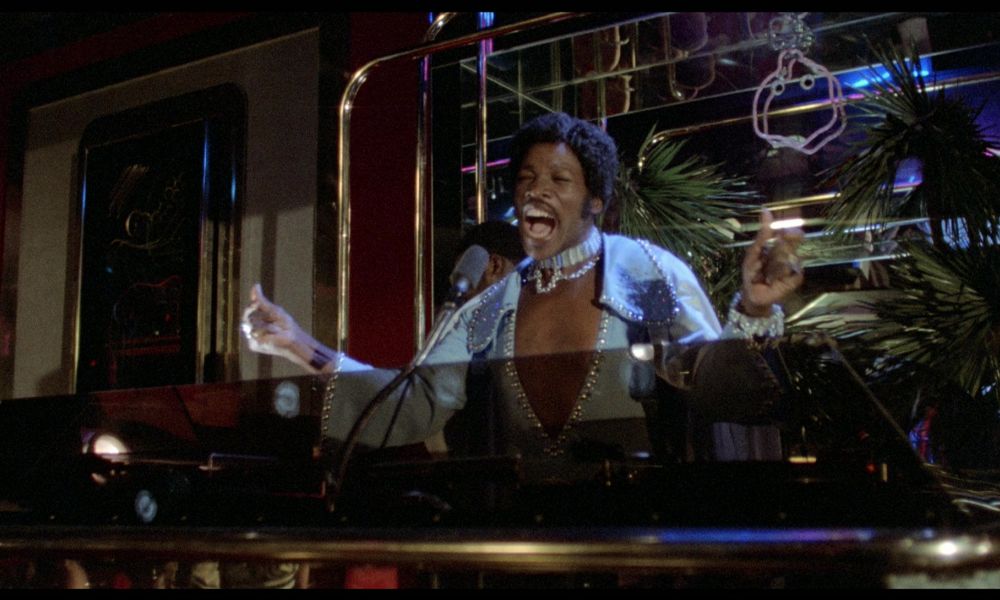
With Dolemite Is My Name, we got a glimpse into the chaos surrounding the making and distribution of Dolemite. Did the other productions go smoother or did they have their fair share of problems, too?
There were problems of various kinds in all of Moore’s films, which were mostly financial but not to the degree he experienced with Dolemite.
There were problems of various kinds in all of Moore’s films, which were mostly financial but not to the degree he experienced with Dolemite.
Do you have an estimated budget for each of the four movies he produced in the 70's? It would be interesting to see how much it changed betweeen the productions.
Dolemite was $140,000 when it was fully completed. I’ve been told all sorts of varying budget totals for the other films that do not match what we see on the screen, so I don’t believe that any of Moore’s films had more than $300,000 to work with.
A movie that really stands out during this period is The Monkey Hustle, an American International Pictures production and the only movie he had a part in that wasn't self-produced during his prime. How did that come about and what kept him from making more movies by bigger studios?
The Monkey Hustle director Arthur Marks wanted Moore in the film to simply do what he does. Truthfully, Rudy was limited in his acting abilities and wasn’t taken seriously by other companies. You can see that in Dolemite is my Name when he’s treated dismissively by American International when he’s trying to get his movie made. Rudy was turned down by AIP and they also declined to distribute Dolemite. Ironically, The Monkey Hustle was produced by AIP.
The Monkey Hustle director Arthur Marks wanted Moore in the film to simply do what he does. Truthfully, Rudy was limited in his acting abilities and wasn’t taken seriously by other companies. You can see that in Dolemite is my Name when he’s treated dismissively by American International when he’s trying to get his movie made. Rudy was turned down by AIP and they also declined to distribute Dolemite. Ironically, The Monkey Hustle was produced by AIP.

While Rudy was huge in the 70's, the 80's was a pretty rough decade for his career as a comedian. Why is that? What happened?
What he was doing in terms of his comedy and films was largely forgotten it seems right as the 1980’s came in. He also lost his investment with Disco Godfather and was at one of the lowest points in his career. Thankfully he still had his comedy to fall back on and would work whatever small gigs he could find. It really wasn’t until he started to be sampled by rap groups in the second half of the decade that people began to talk of him again and that was very important to begin a slow but steady comback of sorts.
What he was doing in terms of his comedy and films was largely forgotten it seems right as the 1980’s came in. He also lost his investment with Disco Godfather and was at one of the lowest points in his career. Thankfully he still had his comedy to fall back on and would work whatever small gigs he could find. It really wasn’t until he started to be sampled by rap groups in the second half of the decade that people began to talk of him again and that was very important to begin a slow but steady comback of sorts.
One thing he did in the 80's was appearing in Penitentiary II in an out of left field cameo. What's the story about that?
Simply, Jamaa Fanaka was a friend and wanted to put Rudy in his film.

Let's talk of Netflix's superb Dolemite Is My Name, a movie you were a part of. Could you tell us about your involvement in that project?
I was the research consultant for the film and provided my book materials to the writers, Scott Alexander and Larry Karaszewski. Interestingly enough, I had always envisioned them to write this film if it ever came about so that was an instant win for the project in my eyes. If they were curious about something that they didn’t find in my research they would get in touch and I would answer whatever questions they had. The script that they wrote was incredible and so much better than I imagined it ever could be. They really are masters of their craft and it was an amazing experience working with them on the film. I do have to say that during my set visit and throughout this entire process from beginning to end, everyone involved in this project has shown nothing but love for Rudy and gave it their all. I can’t speak enough about how great everything went regarding my own experiences and how incredible the film came out, far better than I ever imagined. I am beyond pleased and I know that Rudy would be also. He would be very proud of himself right now.

Were there a lot of artistic liberties taken when telling his story, or did they stay mostly true to how it all went down?
Any film of this nature has to take artistic liberties to move the story along but I understand those that the writers did. When watching it you have to remember, it’s not a documentary and no film is going to spend fifteen minutes building on the back story to introduce a character. Rudy didn’t meet Jerry Jones at the Inner City Cultural Center or D’Urville Martin at a strip club, but those are great scenes. There are a tremendous amount of tiny details in the film that virtually no one watching would realize are accurate. Rudy did live in a second floor apartment which was where he recorded the majority of his albums. The recreation of the set designs of the films were incredibly accurate, so much so that I was surprised. Using a young Asian woman as the sound engineer for Dolemite is another detail that only those who actually worked on the film or saw on-set photos would know is true. The real life sound engineer on Dolemite, Carol Yasunaga, expressed her surprise to me about that when she saw the film. Netflix provided an advanced screening at their office for myself, Jimmy Lynch and Ben Taylor and they both loved the film and were surprised at how accurate so much of it was. If the only remaining living participants of that time give it their approval, I think that really says something about the film.
Eddie was nominated for a Golden Globe for his performance, but was unfortunately snubbed at the Oscars. One Academy member suggested it may have been because he campaigned too hard for it. This is why I have a love/hate relationship with the Oscars. It shouldn't matter how little, much or if you campaign just enough to get the nod. The performance should be the sole reason one gets a nomination, and Eddie was phenomenal as Rudy. What was your reaction to the snub, which surprised a lot of people?
Netflix did campaign heavily in all catagories for Dolemite is my Name, but they also did the same for their other high profile films. It seems unjust for someone to blame Murphy directly. I never saw anything that indicated he himself was campaigning. I’d be lying if I said I wasn’t disappointed that there were no Oscar nominations for the film because after seeing just how well it came out, how successful it was, and how loved it was by the fans, that was a little upsetting. Of course, I would want to see it go all the way to the top. I do feel it was intentionally overlooked to a degree and at the absolute least, Ruth Carter should have no doubt been nominated for her costume design work. The reality is that it’s just incredible that a film about Rudy Ray Moore was ever made at this level!

Nevertheless, people who never would have known why Rudy was now do, thanks to Dolemite Is My Name. Have you noticed a significant increase in his popularity on social media and such since its release?
Absolutely. The film did something that my upcoming biography could never accomplish. It introduced the world to Rudy Ray Moore and really championed his unwavering motivation. Which really is the film’s focus. He really never did give up, even when his health was failing rapidly. The small downside is you end up with a lot of ”instant experts” on Rudy’s life and career, who have taken everything in the new movie at face value and some misinformation gets spread. Some of these ”10 things you didn’t know about Rudy Ray Moore”-articles making their rounds online aren’t always accurate either. One stated Moore was a preacher, which is completely false.
We know Rudy has become an icon in the world of hip hop, but how well-regarded would you say he is in the stand-up community?
I think Rudy was always considered a ”guilty pleasure” of sorts to his comedy peers, but there are so many who have enjoyed and in some cases, been inspired by his work. Robert Townsend, Keenan Ivory Wayans, Charlie Murphy, Robin Harris, Arsenio Hall and many, many more have all shown their love for Rudy. Richard Pryor and even Sam Kinison were fans. What’s interesting about Rudy’s body of work is that it’s liked by all races, ages and sexes. Johhny Depp, Billy Idol, Billy Bob Thornton and so many others are admitted long time fans.

It's been over 45 years since Rudy's breakthrough and people are still discovering him. What do you think it is about his brand of comedy that manages to still attract people?
The extremity of his comedy material has always been a selling point, but Rudy was doing something that no one else had done on a commerical level. It was familiar to the African American culture but entirely unheard by other cultures. The wild, low-budget craziness of his films has always had an appeal but I really believe there is a sincerity behind them that people can see.
If you could recommend just one record and movie to get someone hooked on Rudy, which ones would it be?
Start where it all began for Rudy; Eat Out More Often and Dolemite.
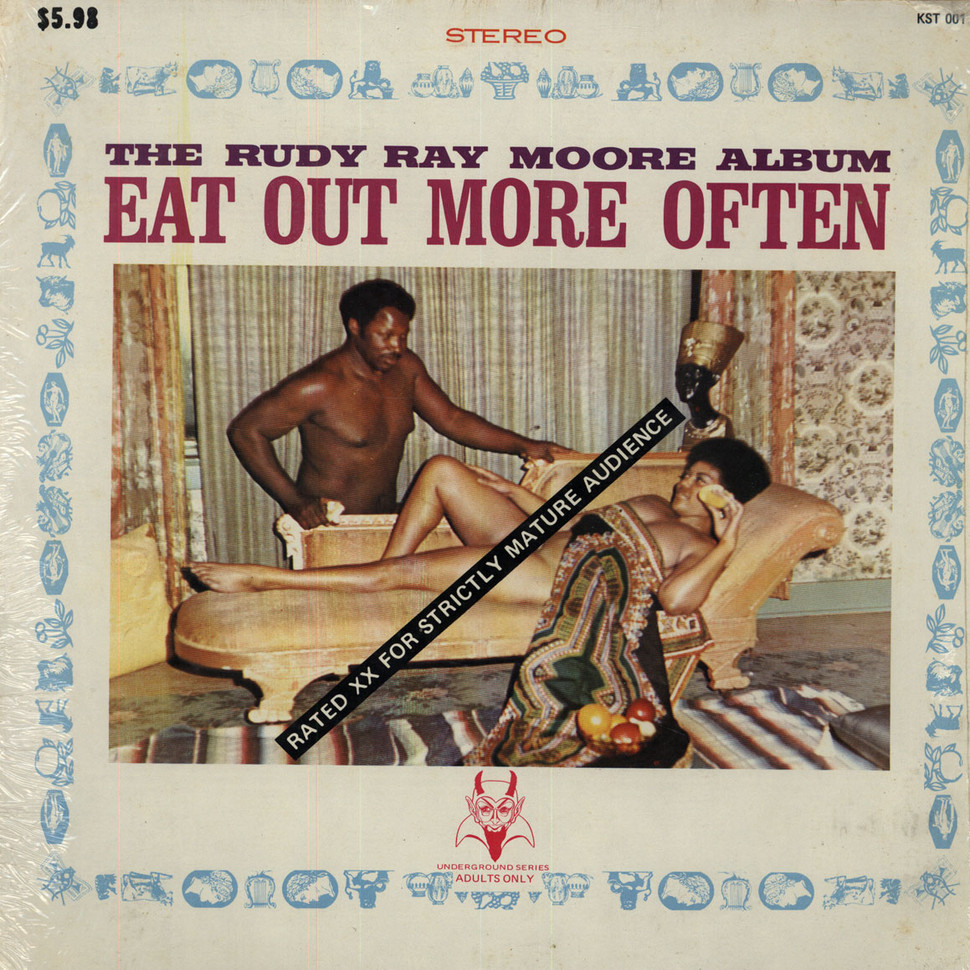
You're curently in the final stages of finalizing your biography of Rudy, a book you've worked on for many years. Can you tell us a little bit about what to expect, when to expect it and where people will be able to buy it?
I’m wrapping the book up now. My journey with Rudy started in 1992 and I officially started on this book at the beginning of 2001, so it’s been a very lengthy process. Of course, it’s Moore’s full life and career story finishing off with the new film, which is a great way to end it all. I’ve been fortunate to get interviews with a great deal of people who worked with Rudy, most of which have passed unfortunately and they will all speak for themselves, as does Rudy in the book. There is so much more to his story than just the couple of years represented in Dolemite is My Name. His childhood, career, influence and legacy are all discussed at length along with a massive discography. All details of the book will be available at www.rudyraymoore.com and everyone should follow Rudy on Facebook, Instagram and Twitter for a daily dose of Rudy Ray Moore.

Stort tack till Mark Jason Murray!